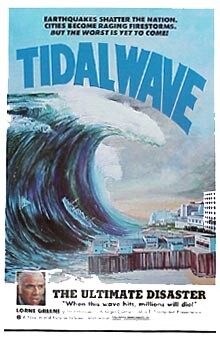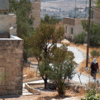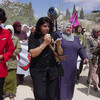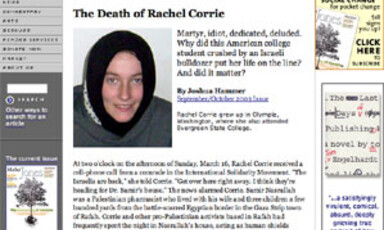
Gaza: The coming tidal wave
Gaza City 18 September 2003
One of my recurring nightmares is about a coming tidal wave. It’s my second least favorite recurring nightmare. My least favorite being the ones about the end of the world. In my tidal wave dreams, the scariest part is the waiting. I know it’s coming. I can see it and I know it will be bad but I also know i can’t run fast enough to get out of the way. Alternatively, I’m stuck and can’t move. Either way the dream sucks… Read more about Gaza: The coming tidal wave







